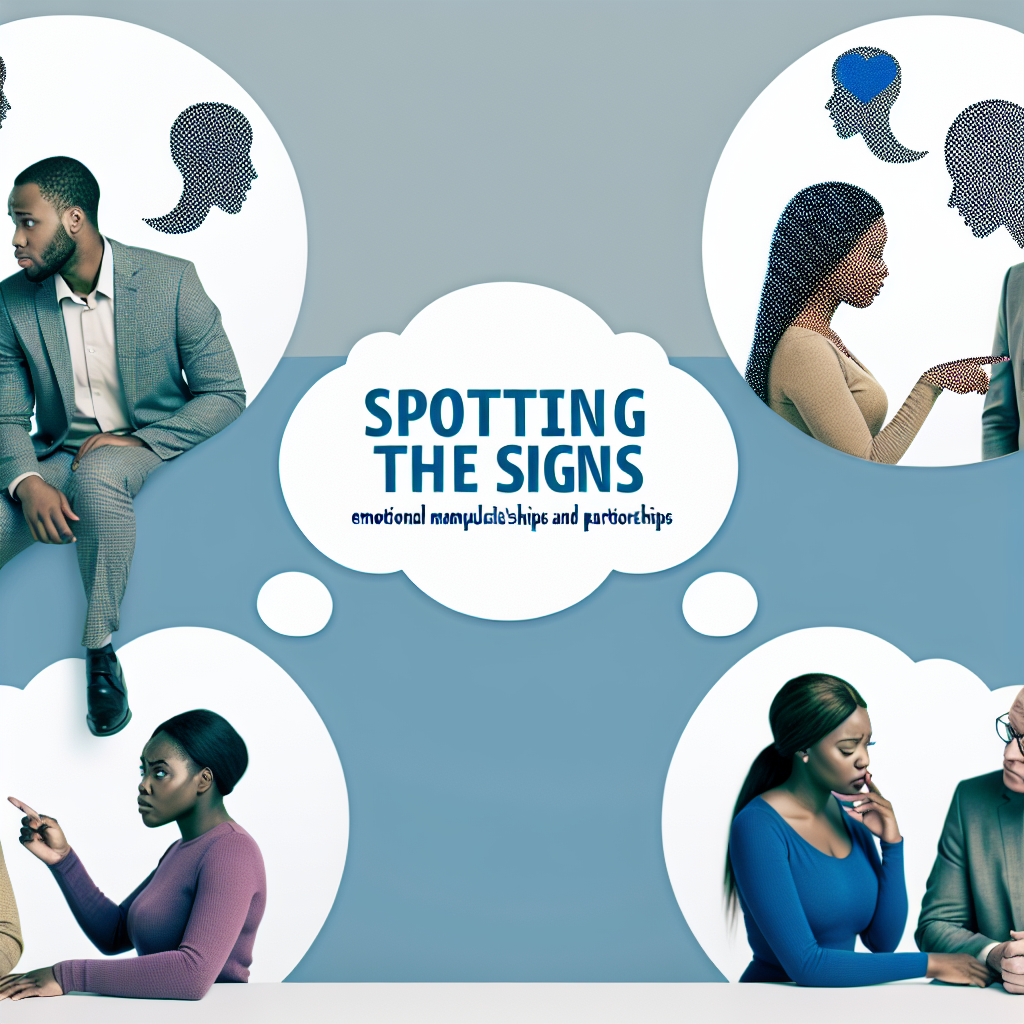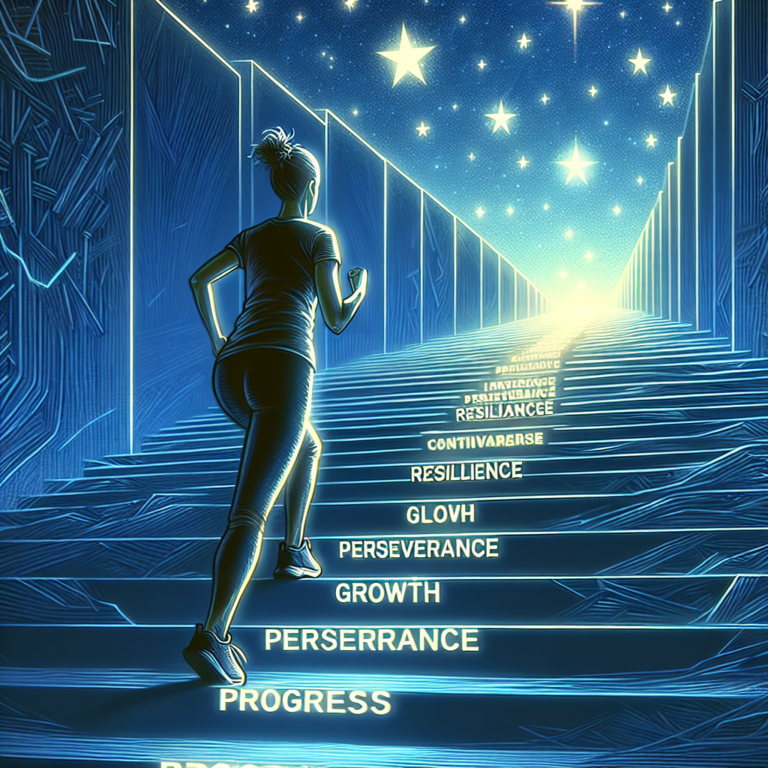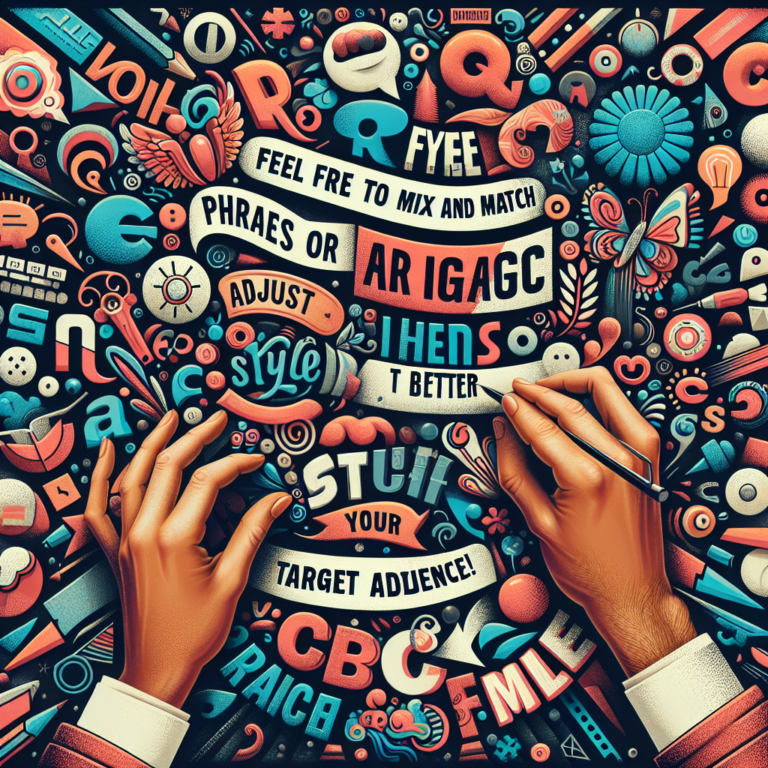
Spotting the Signs: Emotional Manipulation in Friendships and Partnerships – The Essential Guide
Introduction
Have you ever found yourself questioning the dynamics of a friendship or a romantic relationship? The reality is that emotional manipulation can lurk beneath the surface, making it difficult to identify. In today’s world, where emotional intelligence is valued, understanding how to spot the signs of emotional manipulation in friendships and partnerships is crucial. This article will provide you with the ultimate insights and tools to recognize these behaviors, reclaim your emotional space, and foster healthier relationships.
Understanding Emotional Manipulation
What Is Emotional Manipulation?
Emotional manipulation is a tactic used to gain control over another individual by exploiting their feelings. This can manifest through guilt, fear, and even confusion, leading individuals to question their own reality. Recognizing this is the first step toward healing and forming healthier bonds.
Why It Matters
Emotional manipulation can undermine trust, erode self-esteem, and isolate individuals from their support systems. By spotting the signs, you empower yourself and others to break free from these toxic dynamics.
Spotting the Signs: Emotional Manipulation
1. Gaslighting
Gaslighting is a common form of emotional manipulation where the manipulator makes the victim question their own reality. For example, a friend might dismiss your feelings, saying, "You’re just being too sensitive." Over time, this can lead to confusion and self-doubt.
Case Study: Sarah and Jamie
Sarah often found Jamie dismissing her feelings about their shared projects. Each time she voiced a concern, he would respond with: "You’re crazy; it’s not that serious!" Over time, Sarah started doubting her perceptions. Spotting the signs of gaslighting in friendships can help you conserve your emotional energy.
2. Guilt-Tripping
Another common tactic is guilt-tripping, where the manipulator makes the victim feel responsible for their unhappiness. This can create an imbalance in the relationship.
Case Study: Ben and Clara
Ben would frequently say, "If you really cared about me, you would do this for me." Clara started feeling obligated to meet his demands, often at the expense of her well-being. Spotting the signs, like consistent guilt-tripping, can help you set boundaries.
3. Love Bombing
Love bombing involves overwhelming someone with affection and attention initially but can lead to later manipulation when expectations aren’t met.
Case Study: Tom and Miranda
Tom showered Miranda with gifts and compliments at the beginning of their relationship. However, as time passed, he began demanding that she reciprocate, creating a sense of obligation. Recognizing love bombing as a form of emotional manipulation can prevent future heartache.
4. Silence Treatment
The silent treatment can serve as a powerful tool for emotional manipulation. Instead of addressing issues, the manipulator withdraws, leaving the victim feeling confused and desperate for clarity.
Case Study: Mia and Jake
Whenever Jake was unhappy, he would give Mia the silent treatment, leaving her anxious and uncertain. Spotting the signs of this type of manipulation allows you to confront the issue head-on rather than becoming trapped in a cycle of confusion.
Common Characteristics of Emotional Manipulators
Recognizing general traits of emotional manipulators can aid in identifying such behavior in any relationship.
1. Lack of Empathy
Emotional manipulators often show little to no understanding of others’ feelings. This can make their manipulative behavior easier to recognize.
2. Inconsistent Communication
When a friend’s mood swings lead to unpredictable communication patterns, it might be a sign that you are dealing with emotional manipulation.
3. Projection
Manipulators may project their insecurities onto you, leading to confusion and self-doubt.
4. Playing Victim
Emotional manipulators frequently portray themselves as the victim to gain sympathy and keep control over the narrative.
Tools to Combat Emotional Manipulation
1. Communication
Open channels of communication can help prevent misunderstandings and pushback against manipulation attempts.
2. Boundaries
Setting clear boundaries is essential. If a friend is consistently guilt-tripping you, it’s crucial to speak up and assert your limits.
3. Self-Reflection
Regular self-reflection can help you assess whether a relationship is healthy and whether your feelings are valid.
4. Therapy
When in doubt, consider seeking guidance from a mental health professional. They can provide tools and insights to navigate complex emotions and relationships.
Recognizing Your Feelings
Validate Your Emotions
It’s essential to recognize that your feelings are valid. Instead of questioning your emotions, embrace them. If you often feel anxious or upset around certain friends or partners, it may be time to reevaluate those relationships.
Journaling for Clarity
Keeping a journal to document feelings can help clarify whether certain behaviors are consistent issues or just occasional misunderstandings.
Seeking Third-Party Perspectives
Sometimes friends and family can offer insights you might overlook. Their outside perspectives could reveal patterns you may not have noticed.
Conclusion
Spotting the signs of emotional manipulation in friendships and partnerships is a critical skill in today’s complex emotional landscape. By arming yourself with knowledge and tools, you can reclaim your emotional well-being and foster healthier relationships. Remember, recognizing manipulation is the first step toward liberation.
Actionable Insights
- Regularly assess your relationships.
- Establish boundaries.
- Seek support from friends or professionals.
- Trust your instincts regarding your emotions.
FAQs
1. How can I differentiate between healthy discomfort and manipulation?
Healthy discomfort often leads to growth and deeper understanding, while manipulation leaves you feeling drained, confused, or guilty.
2. What should I do if I realize I’ve been manipulated?
Start by setting firm boundaries and communicating them clearly. If the manipulation continues, consider the possibility of stepping away from the relationship.
3. Are all emotional manipulators aware of their behaviors?
Not necessarily. Some manipulators may not recognize their tactics, while others use them consciously to control people.
4. Can emotional manipulation exist in healthy relationships?
Yes, it can manifest in any relationship. However, in healthy partnerships, these behaviors are addressed and resolved rather than ignored.
5. How can I help a friend who is being manipulated?
Listen empathetically and provide support. Encourage them to seek professional guidance if they feel overwhelmed.
By diving deeper into the nuances of emotional manipulation, we empower ourselves and others to navigate relationships with awareness and resilience. Remember, spotting the signs: emotional manipulation in friendships and partnerships can lead to profound healing and growth.















